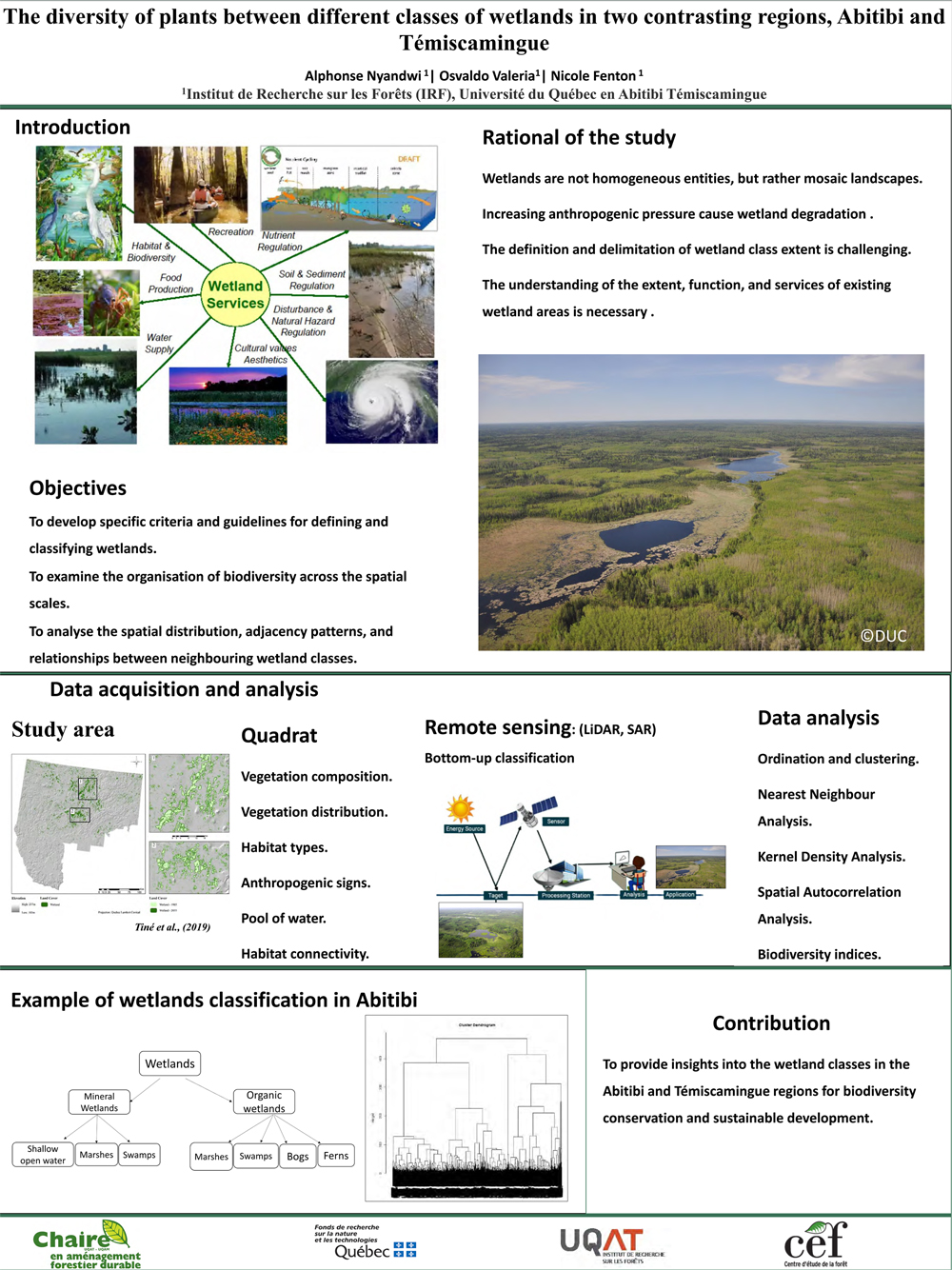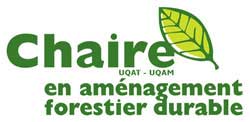
Wetlands are vital ecosystems that provide various function and services that benefit both humans and biodiversity, including water storage, flood control, carbon sequestration, water purification, feeding and breeding site, and habitat provision. Yet they are under sustained threats from human activity and climate change. Thus, increasing anthropogenic pressure are causing wetland degradation in the Abitibi and Témiscamingue regions. This study aims to investigate the effects of human disturbance on the wetlands of Abitibi and Témiscamingue regions in Quebec, Canada, and to propose a better understanding of such impact helping to contribute the conservation strategies based on different wetland classes. The study will use a bottom-up classification system to identify wetland classes based on their vegetation composition, environmental conditions, and spatial distribution. The study will focus specifically on assessing: 1) The spatial distribution of wetland classes present in the Abitibi and Témiscamingue regions using a bottom-up classification system, 2) The spatial distribution and organisation of biodiversity across various spatial scales (landscape position, landform, waterbody, water flow path) and 3) Evaluating the impact of mining, agriculture, and forestry on wetland communities. To collect and analyse data, the study will employ remote sensing techniques (high spatial resolution ), field surveys, and spatial analysis techniques. The expected outcomes of the study are to provide valuable insights into the wetland classes in the Abitibi and Témiscamingue regions, their potential implications for biodiversity conservation and sustainable development, and their effective management and restoration practices in the face of disturbance.
